Electric vehicles are increasingly becoming mainstream. Part of this is because people have started to realize that an EV can help you save long-term money on fuel, maintenance and even taxes. These cars also offer a direct way for people to lessen their negative impact on the environment, as electric vehicles typically have a smaller carbon footprint than gasoline-powered cars.
One thing that has kept many drivers from getting into EVs is the price on the windshield. However, there are several to choose from that cost less than $40,000. In addition, the Federal Government offers a tax credit of up to $7,500 for specific electric cars purchased new in or after 2010, and 45 states and the District of Columbia provide incentives for certain EVs, such as rebates and reduced electricity rates for charging vehicles at home.
Check out six of the most affordable electric vehicles on the market now and learn what to know when shopping for your first EV.
Nissan Leaf (Starting MSRP: $27,800)
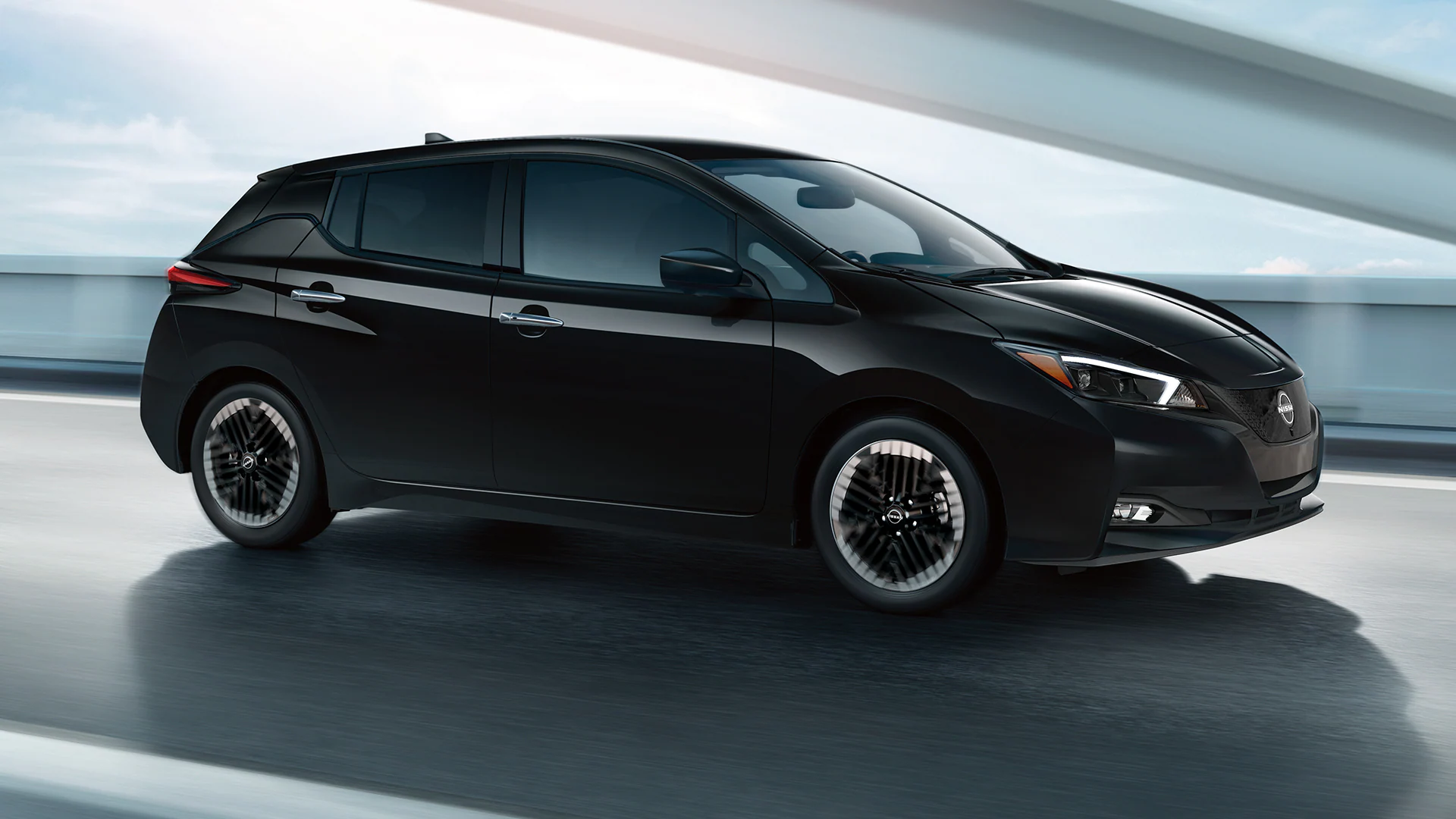
The Nissan Leaf, which has been in production for more than a decade already, can seat up to five people and has a 96-month/100,000-mile battery warranty, along with other coverage.
This affordable electric vehicle gets up to 149 miles on a full charge and can reach a full charge in eight hours using a 240-volt outlet and portable charging cable. It has three different charging levels, so you can top it off quickly with a fast charger when needed. A suite of six standard safety features, such as blind-spot and lane-departure warnings, is also included.
Chevrolet Bolt (Starting MSRP: $31,500)
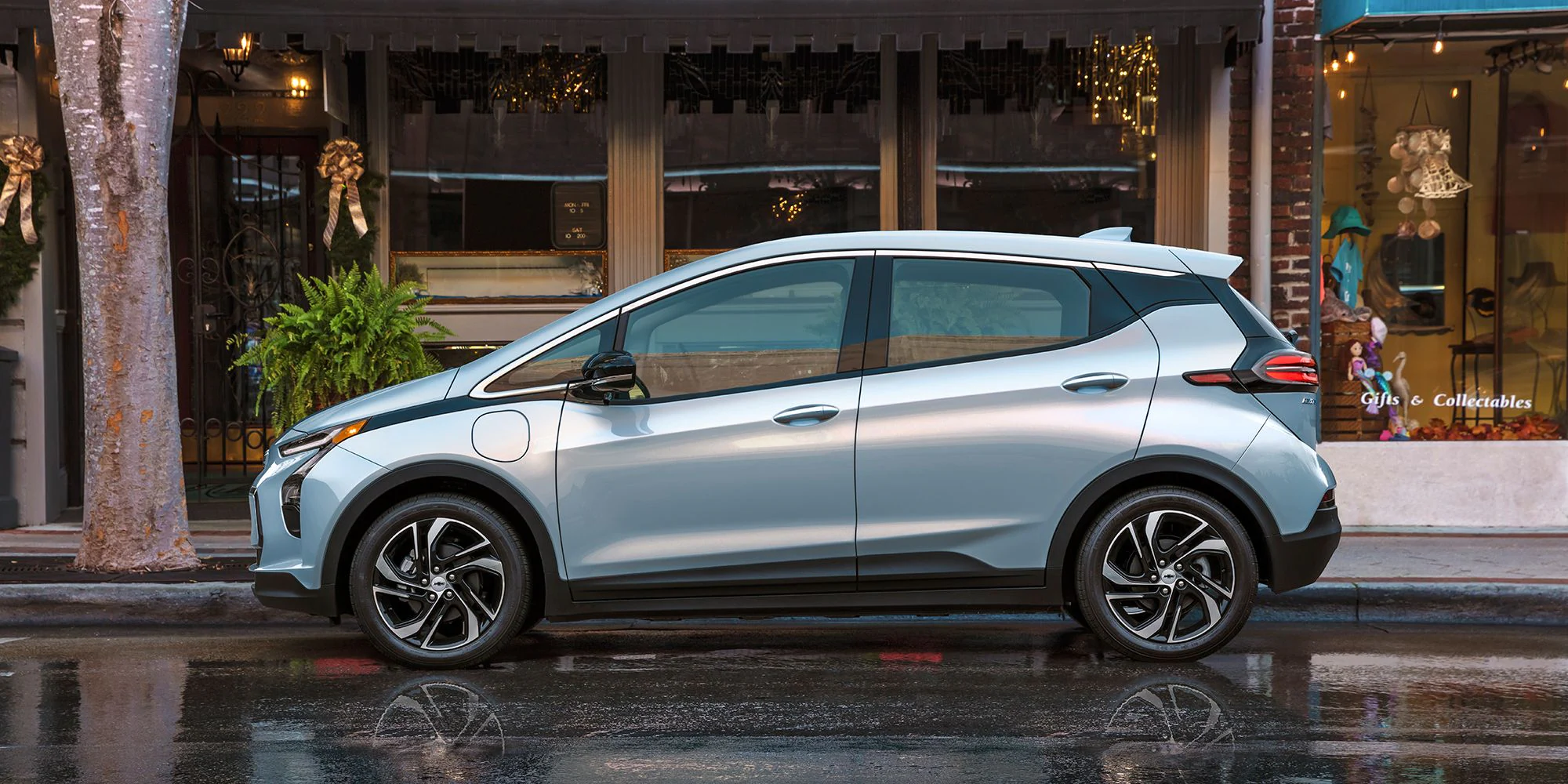
Chevrolet will cover the cost of the standard installation of Level 2 charging outlets for eligible customers who purchase or lease a 2022 Bolt EV. The Bolt has an estimated range of 259 miles on a full charge. This electric vehicle has 200 horsepower and can go from 0-60 MPH in 6.5 seconds. It seats five, with 36 inches of leg room in the rear seats, and features tech and digital upgrades like safety assist, responsive acceleration, and a driver information center. In addition, it has an eight-year battery warranty.
Mazda MX-30 (Starting MSRP: $33,470)
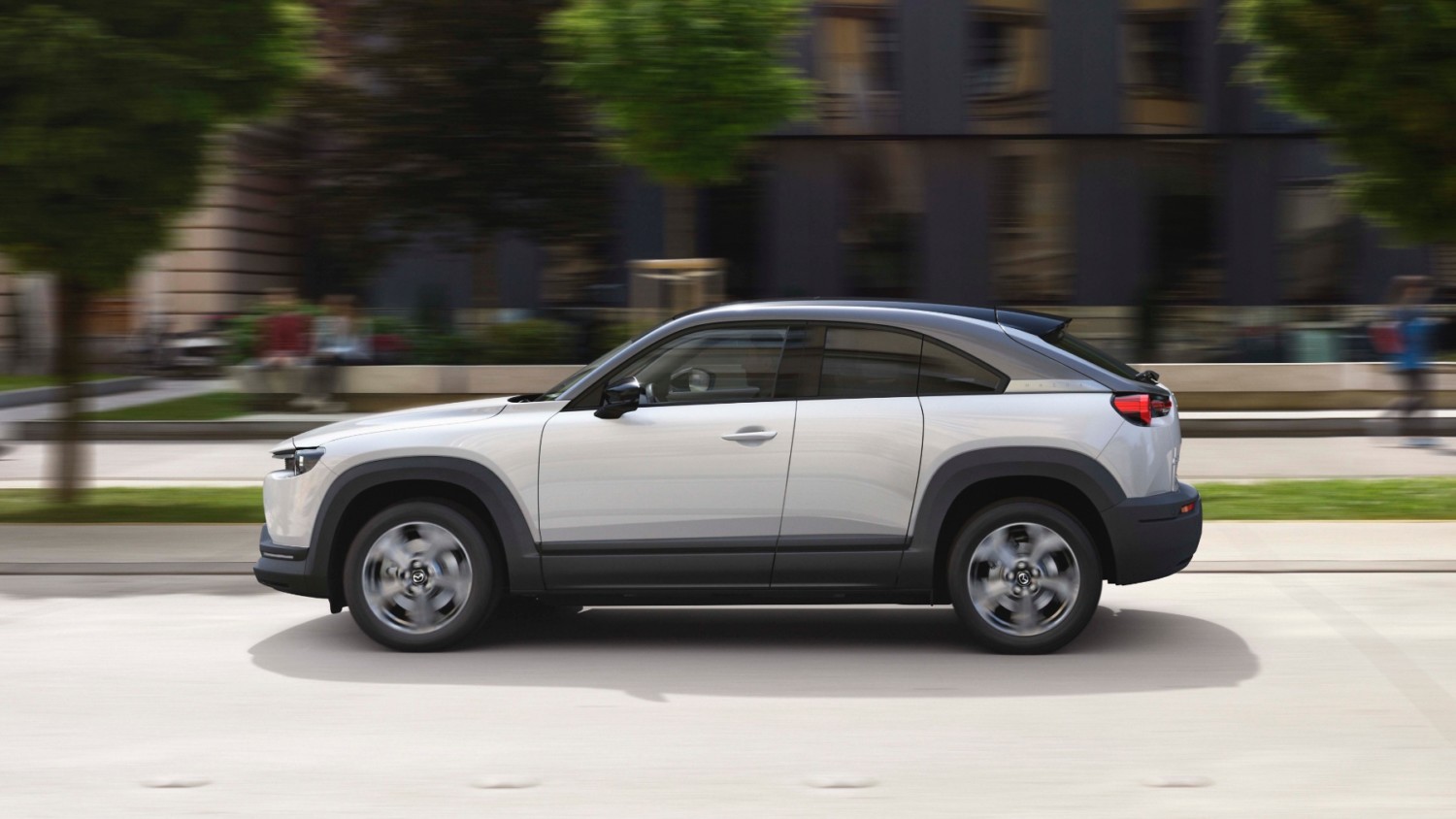
The MX-30 is Mazda’s first electric ride and went into production in 2020. This hybrid has an EPA-estimated range of 100 miles on a full charge. When connected to a Level 3 DC Fast Charger, this EV can go from 20% to 80% in about 36 minutes, according to Forbes.
The MX-30 comes with a Level 1 120-volt charging cable that you can connect to a household outlet and a connector compatible with most public charging stations. It has an active driving display, eight-speaker audio system, power sliding-glass moonroof and more. It comes with an eight-year battery warranty.
Mini SE Hardtop (Starting MSRP: $34,225)
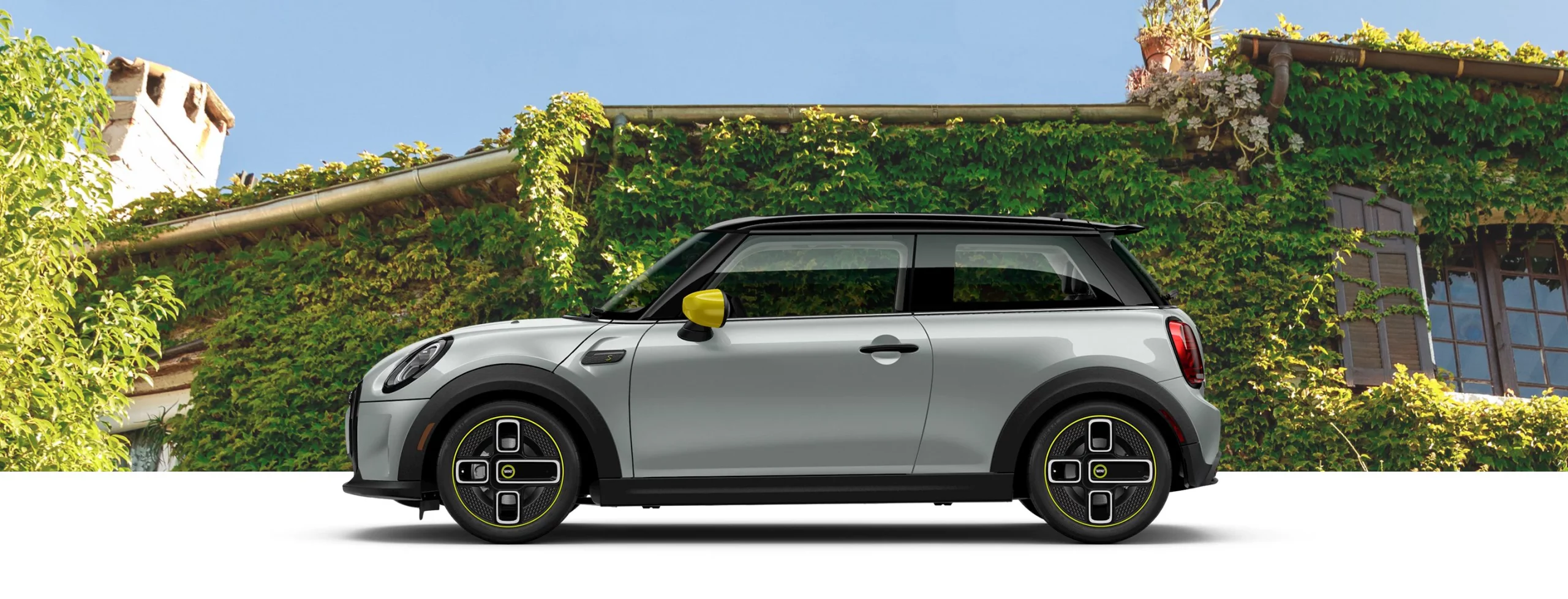
It may be “Mini,” but four adults can ride in this sporty two-door vehicle that has an estimated range of 110 miles on a full charge. Like the Mazda MX-30, this EV can reportedly go from 20% to 80% in about 36 minutes on a fast charger. It has 181 horsepower under the hood and can go from 0-60 miles per hour in 6.9 seconds.
The Mini Cooper SE is compatible with more than 38,000 public charging stations across the U.S. This electric vehicle features many tech and digital upgrades, such as an 8.8-inch touchscreen with an updated user interface and active safety features. Several warranties are offered, including an eight-year/100,000-mile high-voltage battery warranty.
Kia Niro EV (Starting MSRP: $39,990)
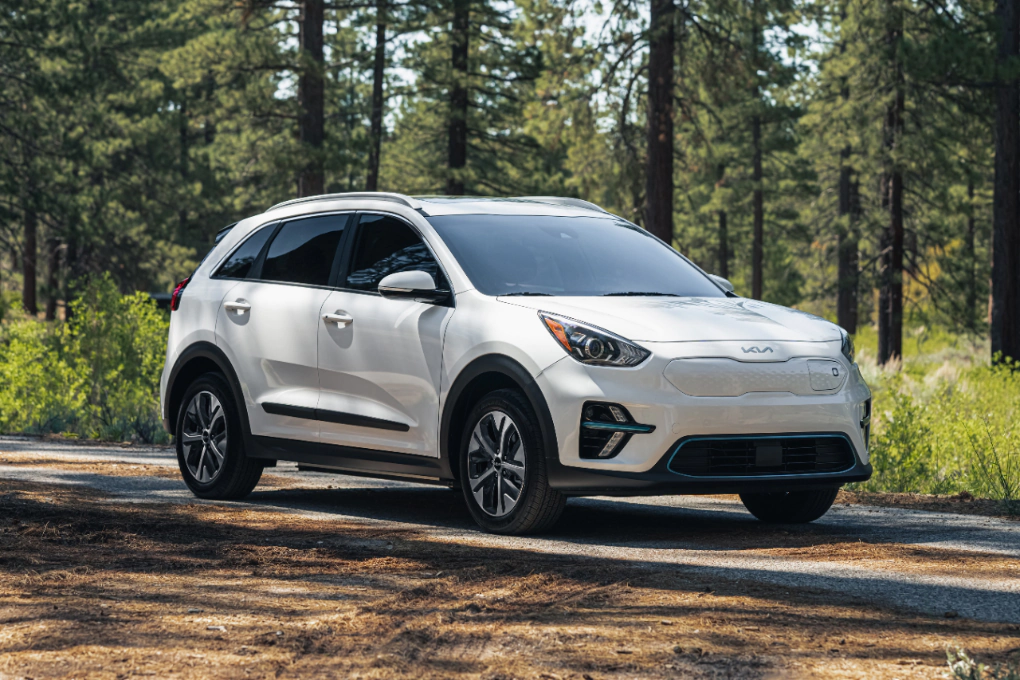
The Kia Niro EV has an impressive AMCI-certified 293-mile range. Using a compatible fast charger, you can add 100 miles of range in about 30 minutes. Driver-assist technology includes features such as navigation-based smart cruise control-curve with stop and go and highway driving assist. Upgraded tech features include a voice-command navigation system with a 10.25-inch touchscreen display and a smart key with push-button start. In addition, Kia provides a seven-year battery warranty.
Things to Consider When Shopping for a New Electric Vehicle
Whether you’re shopping affordable electric vehicles or going to the high end of the price range, there are factors to keep in mind before you commit to a single model. Unlike when the hybrid revolution first started, EV types and models are many and varied these days, from hatchbacks and sedans to minivans, SUVs, luxury vehicles and even pickup trucks.
Consider how you plan to use the vehicle. For instance, your daily commute might take several hours, or you might use your car as part of your job and need to be able to drive many miles on a single charge. Alternatively, you might only need an EV for short drives around town. This can help determine the charging rate and range you’ll need in a new electric car.
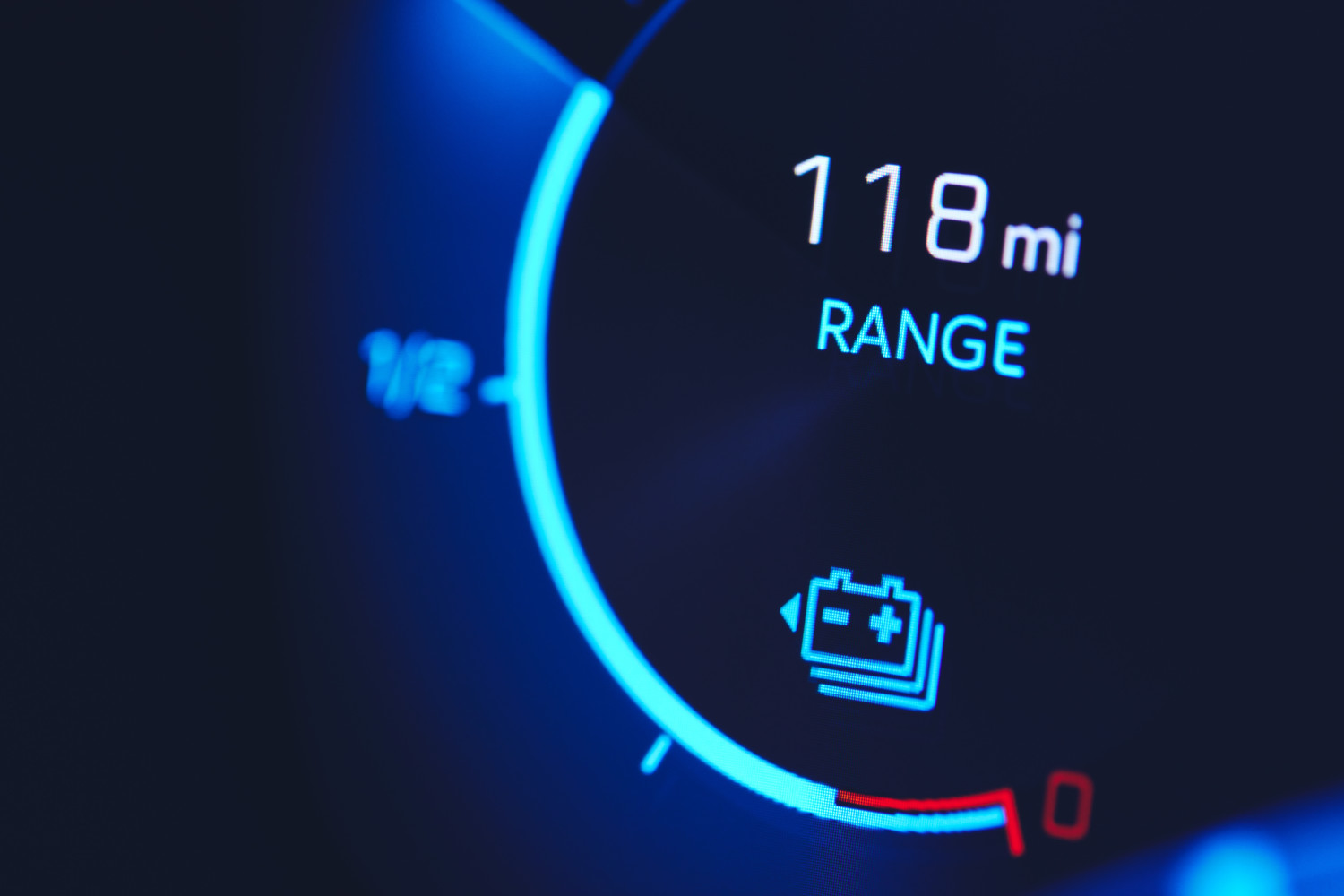
You’ll also need to make sure you have appropriate charging options available. Depending on where you live, there may be countless public charging stations, or they may be difficult to come by. The good news is that, in February 2022, the federal government committed $5 billion to building a nationwide infrastructure of public EV chargers, meaning many more will be coming in the next five years.
For most EV owners, installing a charger at home is the best option. Research the charging capabilities and requirements of an EV model you are considering. Then, look into what you will have to do to have the proper charging equipment and electrical supply ready before you make a purchase.
Maintaining an EV is often more economical since it has fewer components than a gas vehicle. But it’s wise to look into what to expect in the model you’re considering and to find out where you can take it when repairs or maintenance are required. Once you have established what you want and need in an electric vehicle, all that’s left to do is schedule a test drive and see if it’s for you.
This story originally appeared on Simplemost. Checkout Simplemost for additional stories.


